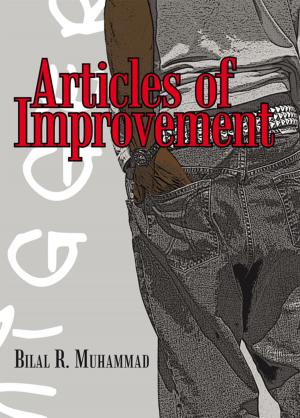101 Leadership Quotes from My Battlefield, Your Office: Leadership Lessons from the Front Line
Business & Finance, Management & Leadership, Management, Nonfiction, Health & Well Being, Self Help, Self Improvement, Motivational| Author: | Justin Constantine | ISBN: | 9781310517549 |
| Publisher: | Justin Constantine | Publication: | June 2, 2016 |
| Imprint: | Smashwords Edition | Language: | English |
| Author: | Justin Constantine |
| ISBN: | 9781310517549 |
| Publisher: | Justin Constantine |
| Publication: | June 2, 2016 |
| Imprint: | Smashwords Edition |
| Language: | English |
I joined the Marine Corps during my second year of law school and served as a criminal defense counsel and criminal prosecutor. But when I deployed to Iraq in 2006, it wasn’t in the role of a JAG officer. In the Marine Corps all the officers learn the basics of many different jobs, so I volunteered for the deployment as a Civil Affairs Team Leader. I led a team of eight Marines and a Navy Corpsman. We were attached to a Marine infantry battalion between Fallujah and Ramadi in Al-Anbar Province. I was expected to develop contracts with the local population to help rebuild the basic infrastructure needed for any city. The projects were designed to provide clean running water, functioning electricity, driveable roads, and well-needed schools. But in the fall of 2006, when the insurgency in Iraq was at its most powerful level, members visited the local Iraqis at night with death threats for any indication of cooperation.
The time I spent in Iraq was the highlight of my career—not too many lawyers get to lead Marines in a war environment. I learned a lot about myself, and effective leadership, while I was there. I was out with a squad of Marines on a regular combat patrol on Oct. 18, 2006. We had just gotten to an area near one of our forward operating bases where an enemy sniper had already killed a few Marines. We had a reporter with us that day, and I noticed him standing around at one of our stops. When we started walking away from the Humvee at the next stop, I warned him to move faster. He stepped forward and a split second later, a bullet came in right where his head had been and hit the wall near us. The next shot hit me behind my left ear and exited out my mouth, causing catastrophic damage. When the Corpsman came running over, the Marines near me told him I was dead.
Blood poured out of my head as Corpsman George Grant focused on keeping me alive. He somehow performed rescue breathing on my destroyed mouth, and then cut open my throat and performed an emergency tracheotomy so I would not drown on my own blood. George was only 25 at the time and had never performed that kind of surgery on a human before, although he had done it once on a pig during a controlled training environment for Corpsmen at Camp Pendleton, California.
It is now 10 years since my injury. I cannot see out of my left eye, I am missing most of my teeth and the end of my tongue, and I cannot talk clearly. I cannot run because the doctors removed several of the bones in my legs to reconstruct my upper and lower jaws. I also suffer from post-traumatic stress and a traumatic brain injury.
Thanks to Corpsman Grant, my wife and family, and numerous individuals and organizations, I have had a fortunate recovery. I retired as a lieutenant colonel, ultimately practiced law for 15 years, and now run my own business as an inspirational speaker and leadership advisor.
I have taken what I learned in the Marines and applied it to the corporate business world, because I learned that operating in the military and leading a team in the private or public sector have definite parallels. Knowing that most people do not have the benefit of learning leadership through an organization like the Marine Corps, and that we can all benefit from the principles our military holds dearly, I wrote “My Battlefield, Your Office: Leadership Lessons from the Front Lines.”
What you are reading now are 101 of the most poignant leadership quotes from “My Battlefield.” Each comes from the heart and is based on my real life experience. Through my own reflective process, I collected the quotes I thought would be most impactful to those who take leadership seriously. I hope that each one will give you something to think about and help you on your journey to be a better leader.
I joined the Marine Corps during my second year of law school and served as a criminal defense counsel and criminal prosecutor. But when I deployed to Iraq in 2006, it wasn’t in the role of a JAG officer. In the Marine Corps all the officers learn the basics of many different jobs, so I volunteered for the deployment as a Civil Affairs Team Leader. I led a team of eight Marines and a Navy Corpsman. We were attached to a Marine infantry battalion between Fallujah and Ramadi in Al-Anbar Province. I was expected to develop contracts with the local population to help rebuild the basic infrastructure needed for any city. The projects were designed to provide clean running water, functioning electricity, driveable roads, and well-needed schools. But in the fall of 2006, when the insurgency in Iraq was at its most powerful level, members visited the local Iraqis at night with death threats for any indication of cooperation.
The time I spent in Iraq was the highlight of my career—not too many lawyers get to lead Marines in a war environment. I learned a lot about myself, and effective leadership, while I was there. I was out with a squad of Marines on a regular combat patrol on Oct. 18, 2006. We had just gotten to an area near one of our forward operating bases where an enemy sniper had already killed a few Marines. We had a reporter with us that day, and I noticed him standing around at one of our stops. When we started walking away from the Humvee at the next stop, I warned him to move faster. He stepped forward and a split second later, a bullet came in right where his head had been and hit the wall near us. The next shot hit me behind my left ear and exited out my mouth, causing catastrophic damage. When the Corpsman came running over, the Marines near me told him I was dead.
Blood poured out of my head as Corpsman George Grant focused on keeping me alive. He somehow performed rescue breathing on my destroyed mouth, and then cut open my throat and performed an emergency tracheotomy so I would not drown on my own blood. George was only 25 at the time and had never performed that kind of surgery on a human before, although he had done it once on a pig during a controlled training environment for Corpsmen at Camp Pendleton, California.
It is now 10 years since my injury. I cannot see out of my left eye, I am missing most of my teeth and the end of my tongue, and I cannot talk clearly. I cannot run because the doctors removed several of the bones in my legs to reconstruct my upper and lower jaws. I also suffer from post-traumatic stress and a traumatic brain injury.
Thanks to Corpsman Grant, my wife and family, and numerous individuals and organizations, I have had a fortunate recovery. I retired as a lieutenant colonel, ultimately practiced law for 15 years, and now run my own business as an inspirational speaker and leadership advisor.
I have taken what I learned in the Marines and applied it to the corporate business world, because I learned that operating in the military and leading a team in the private or public sector have definite parallels. Knowing that most people do not have the benefit of learning leadership through an organization like the Marine Corps, and that we can all benefit from the principles our military holds dearly, I wrote “My Battlefield, Your Office: Leadership Lessons from the Front Lines.”
What you are reading now are 101 of the most poignant leadership quotes from “My Battlefield.” Each comes from the heart and is based on my real life experience. Through my own reflective process, I collected the quotes I thought would be most impactful to those who take leadership seriously. I hope that each one will give you something to think about and help you on your journey to be a better leader.















